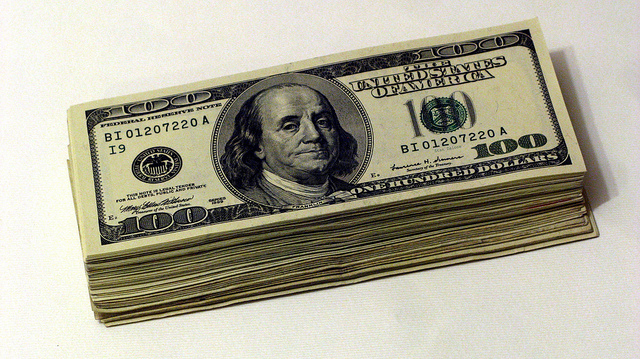We all have bad habits, like chewing our nails or smoking. Did you know many people also have bad money habits? They are often hard to break too because those habits were taught to us by our parents or we just do them because we don’t understand how money works. Even when you have the best of intentions and a strong financial plan, bad money habits still happen.
It is time to break those bad happens. Whether you’re an owner-operator or fleet driver, it’s important to have good money habits in your personal and your professional lives. You always want to stay in the black. Let’s look at five common bad money habits and how to stop them.
Impulse buying
Impulse buying is a common issue many people struggle with on a daily basis. Are you the first one in line for the latest iPhone? Are you always buying a chocolate bar or snack every time you fill up at the truck stop? Stop and think. Do you really need the newest iPhone when your current one works just fine?
Impulse buying can often be connected to emotional spending. When we’re feeling sad or lonely, sometimes heading to the store helps. But does it really? The temporary high that you get from buying will eventually wear off leaving you with less money in your wallet or with credit card debt.

If you’re someone who impulse buys often, you should consider setting yourself some ground rules. For example, make yourself a wish list and only buy items from that list. Or, make yourself wait 24 hours before making an unplanned purchase.
Bad health vices
Are you a smoker? Did you know that a lifetime of smoking not only costs you your health, but between $1 and $2 million? Imagine all that money back in your wallet. It is estimated that over 67% of longhaul commercial truck drivers smoke. Chances are you might too.
If you’re struggling with money always look where you’re spending it on. If you’re spending way too much money on things like smoking and fast food, it’s time to make some life changes. Not only will it improve your overall health, you’ll have more money in the bank.
Contact your company or health insurance company to see if they cover the costs of smoking cessation programs. Seek out support groups along your routes. Plan your meals in advance and bring lots of healthy snacks in a cooler.
Comparing your lifestyle or business to other people’s
Too many people try to keep up with the Joneses. The Joneses might have the nicest technology in their truck or can afford lavish beach vacations every winter, but you don’t know what their finances truly look like. Perhaps Mr. Jones is really doing well in his business or he could be in a load of credit card debt.
Fancy technology and big houses don’t indicate how much money people have, but rather how some people choose to spend their money. Just because someone has the latest satellite radio installed in his truck doesn’t mean you need one too. Over 37% of Americans have credit card debt greater than their emergency savings.
To avoid living beyond your means, start by determining what’s important to you and set up a budget. Set goals for what you want your life to look like in 5, 10, or 50 years from now. Do you want to retire in a nice neighborhood debt free? Stop trying to keep up with the Joneses and live your life.
Stop spending all your profits
If you’re an independent driver then you know the importance of staying in the black and making a profit. You can’t run a successful business by continuing to operate in the red.
You may be tempted to spend all your profits on new technology, a newer trailer, or a new house for the family. Of course you should be able to spend some of your profits, but you should keep some for a “rainy day.” Remember you need to pay taxes, buy health insurance, and keep your truck running in one piece.
Depending on credit cards
Credit cards are a great tool to make your money and spending work for you. However, they can also lead to major debt for some people if they don’t know how to manage their finances properly. American credit card debt reached $900 billion in 2015.
Many truck drivers use credit cards to pay for expenses, such as repairs and fuel. That’s totally fine as long as you’re paying your bill in full every month. If you’re only making the minimal payments each month your credit score will suffer and that will only hurt you in the end, especially if you’re looking to take out a loan in the future to buy a new truck.
If you have personal or business credit card debt, take the time to understand where it is coming from and how to stop it. Calculate your debt and create an action plan to pay it off. To stop the cycle of debt, stop using your credit cards immediately and switch to cash.
Money is a necessary evil. It can do amazing things like buy homes, vacations, and keep food in our bellies, but it can cause damage to many of us if we’re not smart. Bad money habits haunt many of us everyday. It’s time to take action and break those bad habits and create good one. Follow these five tips and you’ll be sure to start seeing more money in your bank account.
Image Source - https://www.flickr.com/photos/miran/